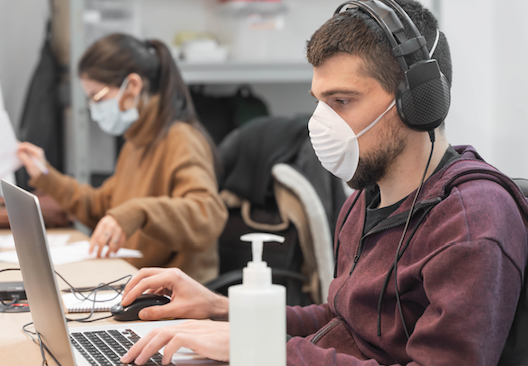
The coronavirus (COVID-19) pandemic has created massive change and concern for employers and employees across the world. Even as businesses reopen and employees return to their new normal, the risk of becoming exposed to and ill with COVID-19 is still present. When an employee reports they have COVID-19, employers are faced with the difficult task of determining whether the employee’s illness is work-related.
This HR Insights piece will provide an overview of how employers can determine when a COVID-19 case is work-related, OSHA requirements for reporting illness and best practices for responding to an employee’s positive COVID-19 test. As is the case with all inherently legal issues, employers are strongly recommended to seek the guidance of legal counsel when faced with any of the claims discussed herein. This article should not be considered legal advice.
OSHA Requirements
The Occupational Safety and Health Act (the Act) requires employers to report and record work-related injuries and illnesses. OSHA has indicated that COVID-19 infections are recordable injuries if they are work-related and they meet the Act’s recording criteria. Recording requirements apply only to employers with more than 10 employees who are not in an exempt, low-risk industry.
In addition, employers must report incidents that result in an employee’s fatality within eight hours. Incidents that result in inpatient hospitalization,
amputation or loss of an eye must be reported within 24 hours.
OSHA Guidance on Work-relatedness
An injury or illness is work-related if an event or exposure in the work environment either caused or contributed to the resulting condition or significantly aggravated a preexisting injury or illness. Work-relatedness is presumed for events or exposures in the work environment.
Case-by-Case Evaluation
Unfortunately, because the coronavirus is so widespread, determining whether an employee’s illness is work-related can be difficult and should be evaluated on a case-by-case basis. Employers can conduct the following activities when an employee reports a positive COVID-19 diagnosis:
- • Ask how the employee believes they were exposed to the coronavirus.
- • Ask employees about their work-related activities.
- • Ask employees about their out-of-work activities, while being sure to respect their privacy.
- • Conduct a review of the employee’s work environment to identify potential COVID-19 exposure.
- • Review whether the employee’s co-workers have reported a COVID-19 diagnosis or symptoms. Read More















